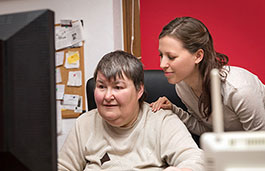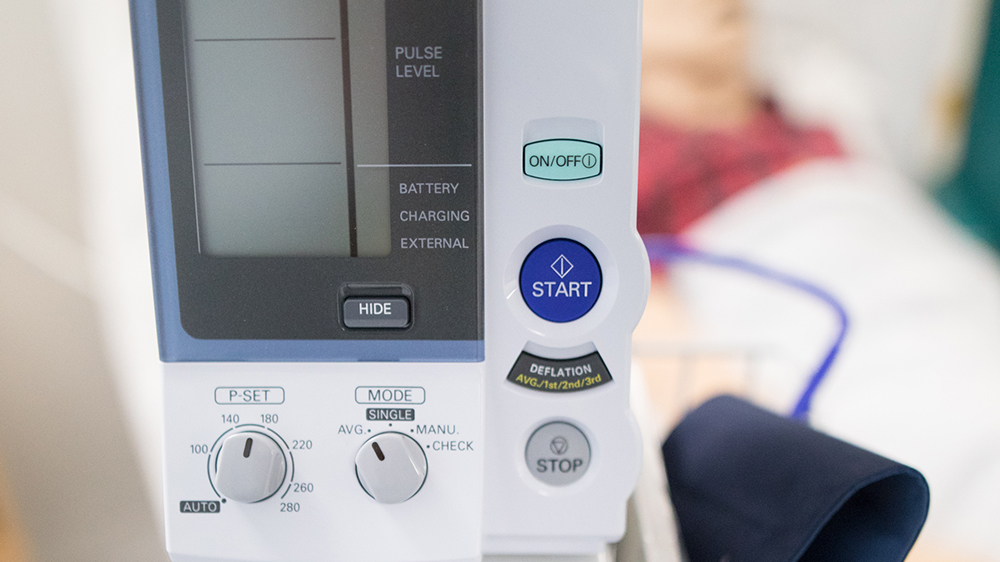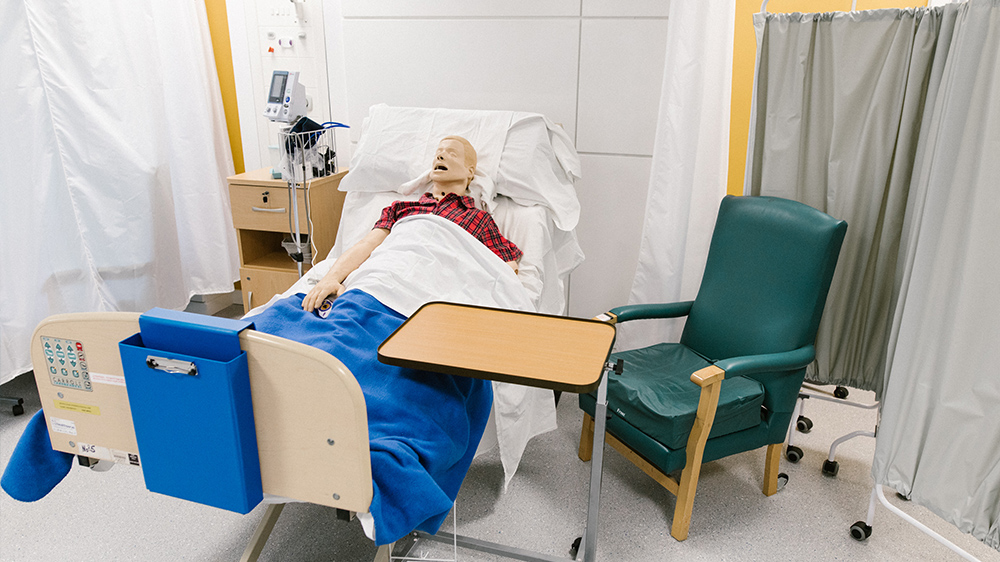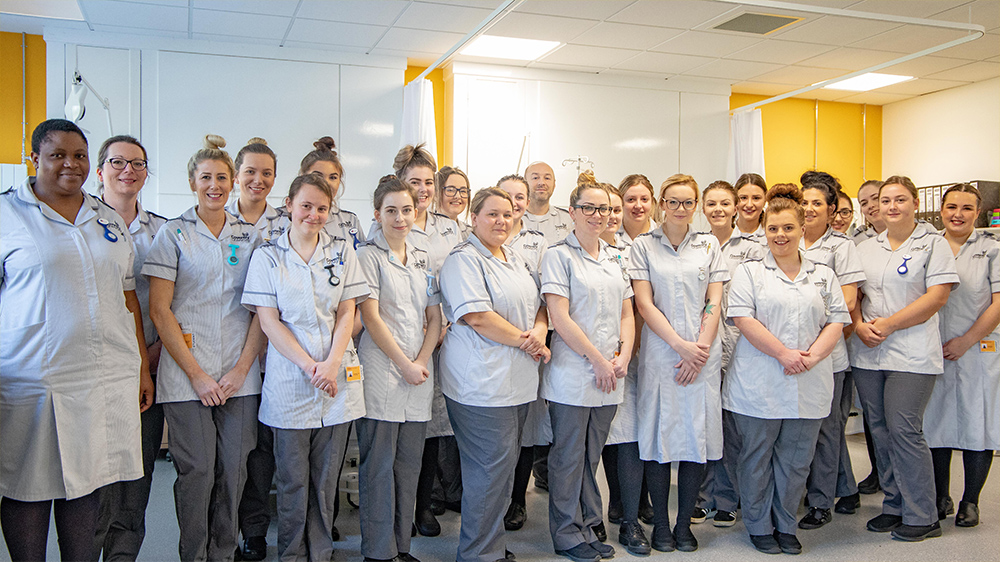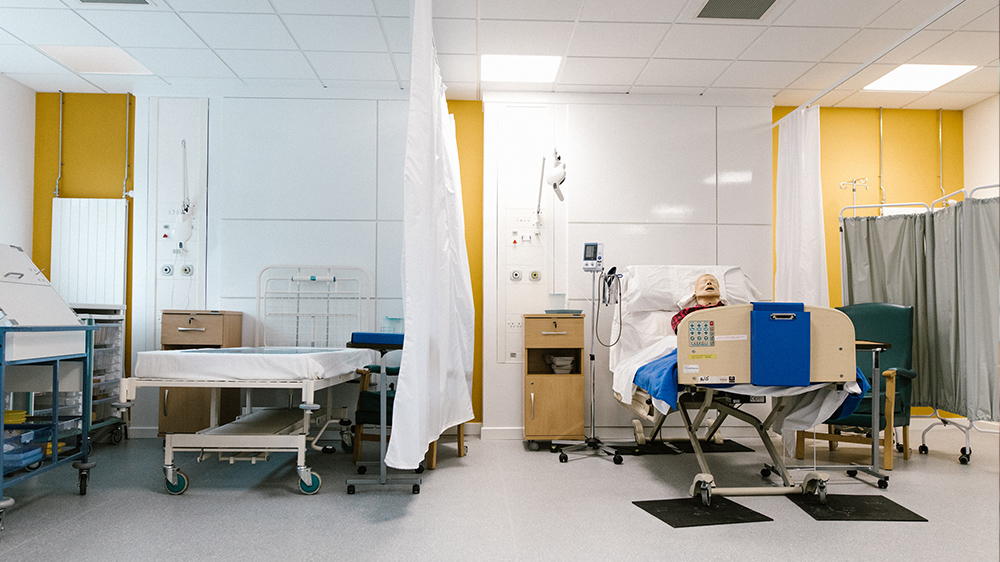Search
Mental Health Nursing BSc (Hons)
Study level: UndergraduateProfessionally Accredited Programmes

This degree combines theory and practical learning to lead you towards professional registration and a rewarding career as a mental health nurse.
Course option
Year of entry
Location
CU Scarborough (Scarborough)
Study mode
Full-time
Duration
3 years full-time
UCAS codes
HU07
Start date
September 2025
Course overview
Mental health nurses work with a diverse range of people across a variety of settings including community and primary care, charities, in-patient, forensic and specialised services.
Proficient in treating physical health needs, mental health nurses focus on establishing therapeutic relationships with individuals and their support networks. They aim to ensure that individuals are actively involved in decision-making processes related to their own care.
This course aims to equip you with the skills to respond to individuals in distress or crisis, reduce the stigma surrounding mental illness and advocate for the holistic health and wellbeing of individuals, communities and populations.
- Successful completion of this course makes you eligible to apply for professional registration as a mental health nurse with the Nursing & Midwifery Council (NMC) (please see Accreditation section for more information).
- Learn to collaborate and thrive as a mental health nurse across and within multidisciplinary teams to coordinate safe, evidenced-based care delivery.
- Study one academic module at a time, with five weeks of learning followed by one week of assessment per module.
- All eligible learners on this course can apply for a minimum payment from the government of £5,000 per year. You can apply for additional payments if you incur childcare costs6.
- Your learning on placement will take place in diverse practice-based learning environments where you will apply your theoretical knowledge to the real world2,5.
Why you should study this course
If you are compassionate, enthusiastic and committed, we can support you in developing the skills to deliver professional, evidence-informed care that truly impacts people’s lives.
- Our approach supports you to develop a strong sense of professional identity and accountability from day one.
- Develop your confidence and skills in preparation to lead, influence and supervise others.
- Delivered by a team that includes highly skilled, knowledgeable, nursing and allied health professionals.
- Develop your digital fluency, curiosity, critical and reflective thinking.
- Access to success coaches, placement supervisors and specialist support for mathematics and academic writing4.
Studying nursing at CU Scarborough
Gain the skills and experience to transform lives, communities and the future of healthcare delivery. We aim to empower you to become a stand-out healthcare professional, capable, competent and confident in your field and role within the wider healthcare team.
While continuously developing your sense of professional identity as a mental health nurse from day one, you'll learn in an environment that puts inclusivity, diversity and dignity at its heart.
Coventry University ranked 1st for Mental Health Nursing
Guardian University Guide 2025
Accreditation and professional recognition
The degree is accredited1 and recognised by the following bodies:
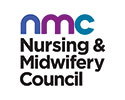
Nursing & Midwifery Council (NMC)
The degree is currently accredited by the Nursing & Midwifery Council (NMC)1. Following changes that have been made to improve the course, we will apply for re-accreditation for entrants of 2025-26. If any changes occur with respect to our accreditation, we will notify applicants and students as soon as possible.
This is a normal part of the process of continuous improvement of our courses to ensure they remain up-to-date and reflect best practice.
CU Scarborough celebrates success of Nursing graduates
87 per cent of 2024 Nursing graduates secured employment locally before they even graduated.
Find out more about this achievement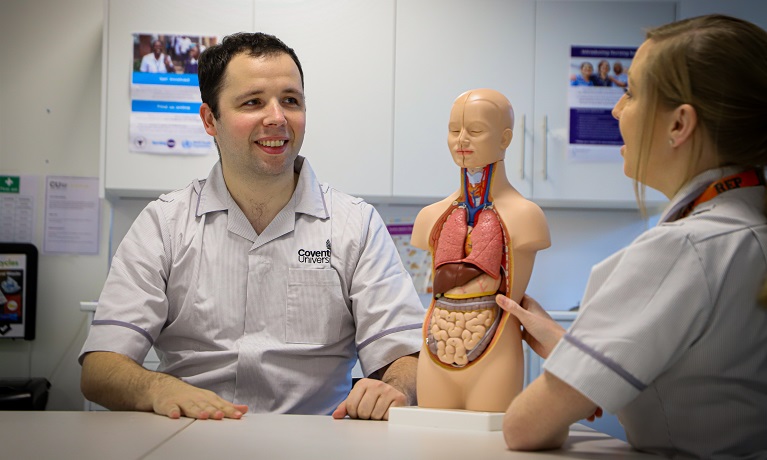
What you'll study
We regularly review our course content, to make it relevant and current for the benefit of our students. For these reasons, course modules may be updated.
The course is set up so that there are practice placements. These placements, as well as the teaching content, has allowed me to learn and develop skills to implement in practice.
Liam Cowton, final year Mental Health Nursing student, 2023
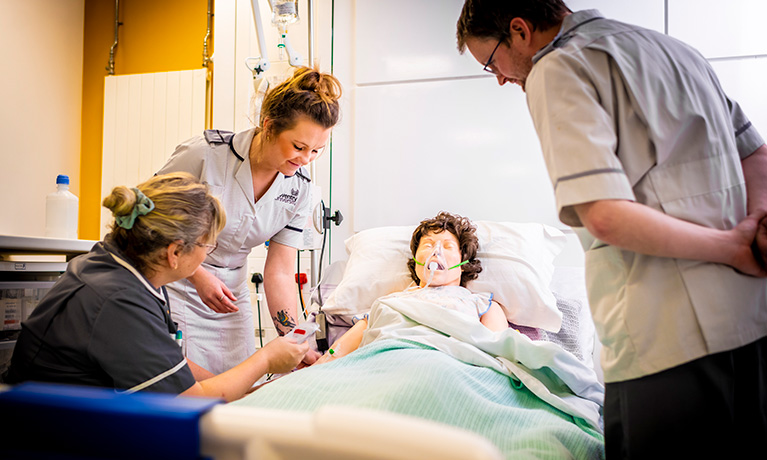
How you'll learn
We understand that everyone learns differently, so this course will consist of structured teaching sessions which can include:
- on-campus lectures, seminars and workshops
- group work
- self-directed learning
- mandatory placements in clinical practice2,5.
Teaching contact hours
As a full-time undergraduate student, you will study modules totalling 120 credits each academic year. A typical 20 credit module requires a total of 200 hours study. This is made up of teaching contact hours, guided and independent study.
Teaching hours:
Teaching hours vary each semester, year of study and due to module selection. During your first year you can expect 10-12 teaching hours each week. You will also have the option to attend optional sessions including time with a progress coach or to meet with staff for advice and feedback. As you progress through your studies, teaching hours may reduce.
Practice-based learning:
Practice-based learning forms an essential and significant part of your learning experience. Practice hours will differ between placements and different health and care courses. You will have access to University staff, but should expect to spend the majority of your contact time with practice collaborators undertaking placement activity. Overall, the hours you undertake in practice-based learning will need to satisfy the eligibility requirements set by the professional body regulating profession, the NMC. No less than 2300 practice-based hours gained from a combination of placement and simulated learning will need to be completed over the course of your degree.
Guided and independent study:
Throughout your studies, you will be expected to spend time in guided and independent study to make up the required study hours per module. You’ll be digging deeper into topics, review what you’ve learned and complete assignments. This can be completed around your personal commitments. As you progress through your studies, you’ll spend more time in independent study.
Online learning:
As an innovative university, we use different teaching methods including online tools and emerging technologies. So, some of your teaching hours and assessments may be delivered online.
Assessment
This course will be assessed using a variety of methods which will vary depending upon the module.
Assessment methods may include:
- coursework
- practice placement2,5
- formal examinations
- Objective Structured Clinical Examinations
- presentations
- assessed discussions
- numeracy exams.
The Coventry University Group assessment strategy ensures that our courses are fairly assessed and allows us to monitor student progression towards achieving the intended learning outcomes.
We are very proud of the nursing programme at CU Scarborough. We are continuously exploring new approaches to teaching that is responsive to our students and links to real world practice. The course team have a wide range of experience across all fields of nursing and are extremely passionate about using this to prepare the future workforce.
Smaller cohort sizes mean that we get to know our students in their journey to become a registered nurse. We have close links with our practice partners who students will learn in practice with, and many go on to secure jobs in these areas too.
Claire Barwick, CU Scarborough Nursing Curriculum Lead, 2024
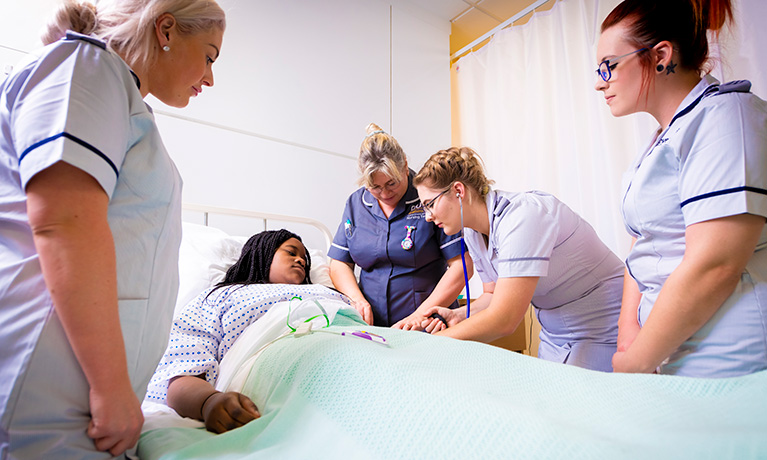
Entry requirements
Typical entry requirements:
Fees and funding
| Student | Full-time | Part-time |
|---|---|---|
| UK, Ireland*, Channel Islands or Isle of Man | £9,535 per year | Not available |
| EU | £9,535 per year with EU Support Bursary** £19,850 per year without EU Support Bursary** |
Not available |
| International | £19,850 per year | Not available |
A non-repayable grant of £5,000 and extra payments worth up to £3,000 may be available to eligible students for each year of study. Read more about this in the NHS Learning Support Fund information booklet.
For advice and guidance on tuition fees and student loans visit our Undergraduate Finance page and see the University’s Tuition Fee and Refund Terms and Conditions.
The university will charge the tuition fees that are stated in the above table for the first Academic Year of study. The university will review tuition fees each year. For UK (home) students, if Parliament permits an increase in tuition fees, the university may increase fees for each subsequent year of study in line with any such changes. Note that any increase is expected to be in line with inflation.
For international students, we may increase fees each year, but such increases will be no more than 5% above inflation. If you defer your course start date or have to extend your studies beyond the normal duration of the course (e.g. to repeat a year or resit examinations) the university reserves the right to charge you fees at a higher rate and/or in accordance with any legislative changes during the additional period of study.
We offer a range of International scholarships to students all over the world. For more information, visit our International Scholarships page.
Tuition fees cover the cost of your teaching, assessments, facilities and support services. There may be additional costs not covered by this fee such as accommodation and living costs, recommended reading books, stationery, printing and re-assessments should you need them.
The following are additional costs not included in the tuition fees:
- Any optional overseas field trips or visits: £400+ per trip.
- Any costs associated with securing, attending or completing a placement (whether in the UK or abroad).
*Irish student fees
The rights of Irish residents to study in the UK are preserved under the Common Travel Area arrangement. If you are an Irish student and meet the residency criteria, you can study in England, pay the same level of tuition fees as English students and utilise the Tuition Fee Loan.
**EU Support Bursary
Following the UK's exit from the European Union, we are offering financial support to all eligible EU students who wish to study an undergraduate or a postgraduate degree with us full-time. This bursary will be used to offset the cost of your tuition fees to bring them in line with that of UK students. Students studying a degree with a foundation year with us are not eligible for the bursary.
Facilities
Our campus building is designed with your needs in mind4. As nursing students, you’ll have the opportunity to:
- make use of our simulation facilities - from basic life support manikins to high-tech simulation manikins, which emulate patient responses and test resuscitation skills
- use equipment found in the real world of practice, such as medical devices
- assist with all elements of care, including medication administration.
- build your confidence and knowledge
- prepare you for how to act in real-world situations
- enable you to practice and develop your clinical and interpersonal skills in a safe but realistic environment.
- indoor social spaces, including a café
- a library that includes loan laptops and a silent study area
- open-access computers
- a prayer room
- student support and careers advice teams
- free on-site student parking
- public bus stops close to the campus
- free WiFi.
This is designed to help you to build your confidence before you go on placement.
Mock hospital ward
Gain experience using simulation across a range of care settings. The aim is to:
Realistic scenarios
We may use actors to enhance your experience. This gives you the opportunity to replicate real-life situations. For instance, breaking bad news, demonstrating emotional resilience, and dealing with conflict and aggression.
Other facilities on campus
Our purpose built campus building is arranged around an open central atrium and also includes:
The campus itself is located next to Scarborough’s Sports Village, a complex that includes an Olympic Legacy swimming pool, sports hall, fitness suite, all-weather pitches, and the Scarborough Athletic Club Football ground.
The campus is just a 10-minute walk from the stunning Yorkshire seafront. North Bay is Scarborough’s Blue Flag beach, meaning it is one of the best in Europe for cleanliness, both on the sand and in the water, for facilities, and safety.
Facilities are subject to availability. Access to some facilities (including some teaching and learning spaces) may vary from those advertised and/or may have reduced availability or restrictions where the university is following public authority guidance, decisions or orders.
Careers and opportunities
During your degree you will undertake several placements in a range of service settings2,5. You will work with and alongside qualified mental health nurses, and therefore potential local and regional employers.
After successfully graduating from this course, you can apply for registration with the Nursing & Midwifery Council (NMC) (additional costs apply), which enables you to practise immediately if successful1.
CU Scarborough is committed to preparing you for your future career and aims to give you a competitive edge in the graduate job market. We offer a range of support services to help you plan and prepare for your career.
Where our graduates work
Graduates have found employment as qualified Mental Health Nurses in the NHS, and private and charitable sector mental health services across the UK.
As your career progresses, a number of options may be open to you as a specialist practitioner, advanced nurse practitioner, consultant nurse or manager. You could specialise as a primary mental health worker and work with children and adolescents, for example.
Recent graduates have gone on to work in such settings as child and adolescent mental health services, specialist forensic mental health units, and early intervention services.
How to apply
You may also like
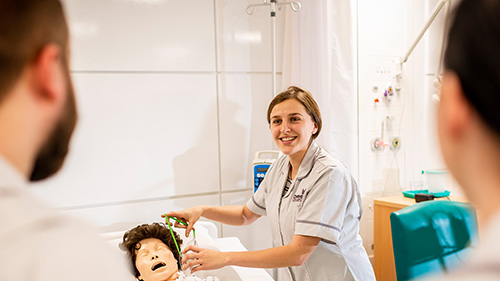
Health and Social Care BA (Hons)
